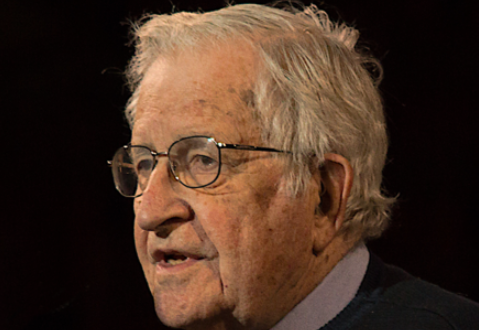This is a cross-post from George Readings of The Spittoon
Habibi blogged yesterday about a “Dawah” tour being planned by iERA, the Islamic Education and Research Academy. They’re a new group launching themselves onto the scene with a series of events in Manchester, London, Leeds, Luton, Bristol and Brighton. In particular, Habibi examined the deeply unpleasant Hussein Ye, one of their speakers and a man who claimed “a group of Jews was so happy in America, they were having a party when the twin towers had been burned. They had a celebration, they had a party going on.”
iERA may be a new group, but one name associated with them will be very familiar. Bilal Philips, the man caught by Dispatches justifying marriage to 9 year-old girls in the modern world because Muhammad did so over a thousand years ago – a clear case of anthopological illiteracy – is not just one of their advertised speakers, he is one of iERA’s advisors.
Philips, a Jamaican born ex-Communist Canadian convert who, in his youth, was involved with the Black Panthers and contemplated training in guerilla warfare, considers his designation as an “unindicted co-conspirator” in the 1993 World Trade Center bombing “really a joke.” He spent 20 years living in Saudi Arabia where he studied at the Islamic University of Madinah, renowned for producing other not-so-pleasant clerics such as Yasir Qadhi and Abu Usamah at-Thahabi. He is banned from entering Australia.
In this video, he tries to answer the Dispatches allegations. Unfortunately for him, he fails. (5:15 onwards)
This is the natural parameters set by Islamic law and it will stand for all times. However, I did point out, and I have always pointed out, that Muslims living in non-Muslim countries are obliged to follow the laws of those countries so if the minimum age is 16 in Britain for consensual sex […] then […] Muslims living in Britain are obliged to follow those laws.
His answer to the Dispatches allegations is to confirm that they are correct. Oh dear. This should not be a surprise though; in 2002 Phillips set out his views on this topic in a publication entitled ‘Contemporary Issues‘ (pdf).
Islaam sets the age of marriage at puberty, as it is the natural dividing line between childhood and adulthood. Menstruation indicates that a young girl has reached childbearing age. This age may vary from country to country, but it is discernable and not arbitrary. (p6)
This publication contains much more that is disturbing about Philips’ views on marriage. On page seven he justifies rape within marriage.
[In] Islaam, a woman is obliged to give herself to her husband and he may not be charged with rape. Of course, if a woman is physically ill or exhausted, her husband should take her condition into consideration and not force himself upon her.
He then moves on to permit wife-beating (p9), but only when
the intent of this beating is not inflicting pain and punishment but merely to bring the woman back to her senses and re-establish authority in the family.
He also doesn’t like homosexuality very much (pp21-22).
The consequence of AIDS is enough to prove that homosexuality is evil and dangerous to society. The early spread of AIDS was concentrated among the homosexual community. It later spread to the heterosexual community through blood transfusions and intravenous drug usage and so-called bisexuals. And continues on a rampage among promiscuous heterosexuals.
And calls for the implementation of the hadd penalties (p18) for
drinking alcohol; theft; armed robbery; illicit sex [homosexual, pedophilia, bestiality]; sexual slander; and apostasy
That’s right, he ranks homosexuality alongside paedophilia and bestiality. Nice. And he’s not talking about some hypothetical introduction of hadd penalties after all the rest of God’s guidance has been enacted on earth. No, he holds up for emulation Sudan’s introduction of hadd penalties. Human Rights Watch have condemned Sudan’s implementation of the hadd penalties for allowing the execution of minors and Sudan’s human rights record otherwise has hardly won plaudits from Amnesty International.
Should you believe corporal punisments a tad brutal for the 21st century, Philips has pre-empted your concerns and provides this distinctly unreassuring reassurance about the hadd penalty for theft (p19).
The right hand is surgically removed at the wrist and not hacked off by a meat cleaver or a chain saw, as media reports seem to imply. The left foot at the ankle is removed on the second occasion and on the third occasion he may be executed as incorrigible.
Another particularly disturbing detail of Philips’s understanding of the hadd penalties is his acceptance (on p20) of pregnancy as proof of illicit sex (zina). This was a rule traditionally only accepted by the Maliki school; pregnancy was rejected by the other schools as circumstantial evidence and because, in the case of rape leading to pregnancy, it places the burden of proof firmly on the victim. Here are two examples of how this acceptance of pregnancy as proof of zina works horrifyingly against the rights of women. They make very difficult reading but it is vital to remember that these horrendous abuses are a direct consequence of what Philips is calling for here.
Philips is also a staunch defender of the death penalty for apostasy (pp22-23.
Islaam is not merely a religion but a complete system of life. Its rules not only govern individual conduct but also shape the basic laws and public order in the Muslim state. Apostasy encourages the rejection of law and order of society. It is an act of treason against the state which would encourage rebellion among the weaker citizens. […]
There is no compulsion in joining Islaam. Anyone may join the religion, but it should not be taken lightly. Only those who are serious should join. The death penalty discourages those who might think to join the religion in order to undermine it from within. The apostasy law was first instituted to stop the undermining of the state. Jews in Madeenah were converting to Islaam and apostating (sic) shortly thereafter in order to destroy the confidence of newly converted Muslims”
Even more disturbingly, he is an apologist for suicide bombings and violence in the name of Islam (17:45 onwards).
Now, the concept of a suicide bomber is different. A person who kills himself in normal life, he is killing himself because he can’t stand to live any more. He feels God is unfair to him or whatever, you know, life has lost its meaning. He just wants to die, get out of this. Right, that’s his intention.
When you look at the mind of the suicide bomber it’s a different intention altogether. His situation is that he is not able to get at the troops of the enemy. They’re either too heavily armed, they don’t have the type of equipment that can deal with it so the only other option they have is to try to get some people amongst them and then explode the charges that they have to try to destroy the equipment and to save the lives of their comrades. So this is not really considered to be suicide in the true sense. This is a military action and human lives are sacrificed in that military action. This is really the bottom line for it and that’s how we should look at it.
Islam is opposed to terrorism in all forms – when it’s true terrorism. But it will not shrink from using violence to gain some of its ends, to establish itself in certain areas, to gain control over certain things it could use a certain amount of violence but to force somebody to become a Muslim this is something inconceivable, unacceptable Islamically.
Again, he has made his views on this topic very clear in ‘Contemporary Issues’ (p41).
Suicide is forbidden in Islaam so the concept of “suicide bombing” is fundamentally unacceptable in Islaam.
1. The intention behind suicide is to escape the problems of this life. Life has become so burdensome for them, they decide to end their lives. Those who strap bombs around themselves in order to kill as many of the enemy soldiers as possible are not tired of life. This is a form of military strategy. The Hamas Movement resorts to this method of attack because they do not have the military strength to confront the enemy on the battlefield.
2. In terms of civilian deaths in Israel, those involved in the struggle there argue that the whole population undergoes military training and most carry arms. Consequently, the population at large are not considered civilians, but military reserves. At any rate, their military operations are not directed at civilians but at military vehicles carrying military personnel. Unfortunately, the blasts sometimes catch civilians in the vicinity.
Which all makes Philips a deeply inappropriate person to be paraded about Britain propagating his vision of Islam. However, whilst I understand that it is a privilege to enter the UK, not a right, I cannot join with Habibi’s call for people who express such unpleasantness to be banned from the country. But then I am something of a free-speech fundamentalist. Whilst Philips’s views are deeply unpleasant, they do not, to my mind, constitute fighting talk and therefore I believe he should be allowed to continue to express them. I suspect many people, perhaps even in the Home Office, will disagree with me.
But this does not mean that I would let the tour go ahead unchallenged. Where it is being held in mosques – as in Manchester and East London Mosque – those mosques should be told clearly that, if these events go ahead, cooperation with local and central government will end. This is particularly important with East London Mosque which somehow managed to get away with allowing a video of Anwar al-Awlaki to be played at an event held there without the Muslim Safety Forum, based at East London Mosque’s London Muslim Centre, being cast into oblivion. Where student Islamic societies are promoting this tour, as the University of East London’s Isoc is, their universities should immediately cut off any funding to the society and, if they deem it appropriate, initiate disciplinary measures against the students involved.
That said, given the the views expressed by Philips and the government’s commitment to its policy of excluding extremists – which I disagree with -, it is difficult to understand why he should be allowed into the country. If the government’s policy is to be proved anything other than a hypocritical sham then it should be abolished or Philips banned from the country.


